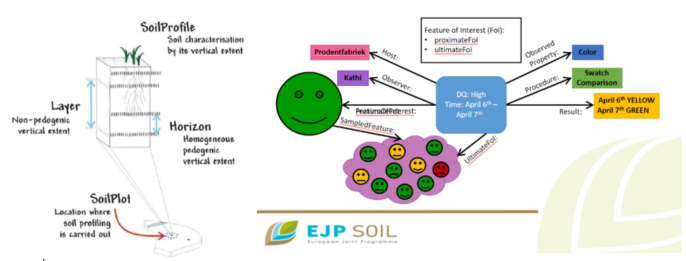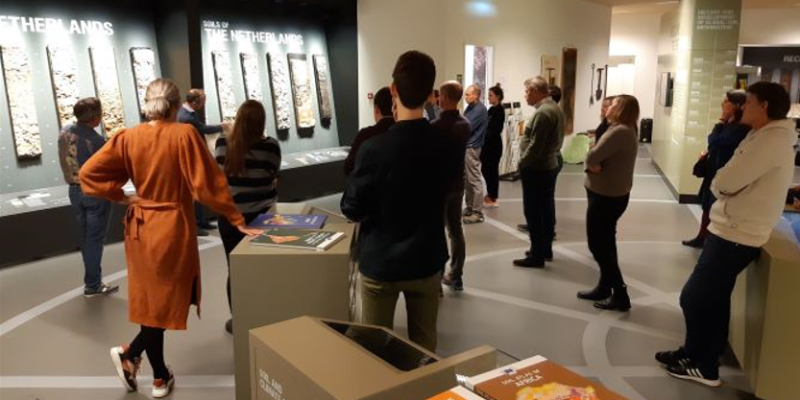ISRIC, WENR and Datacove organised 3 days of training on soil data good practices for soil institutes of EU member states (EJP SOIL project)
Soil experts, data scientists and IT operators from across Europe joined a three-day training on soil data good practices in the scope of the INSPIRE directive at Wageningen University and Research in April 2022. ISRIC - World Soil Information staff organised the main portion of the modules.
The training was organized by European Joint Program (EJP) SOIL to raise awareness and to facilitate member states in publishing harmonized soil data in the scope of current directives. EJP SOIL has a work package dedicated to facilitating member states to publish harmonized soil data. In an inventory from 2021, it appeared that member states in general have a low awareness of the "Soil Data Harmonization and Publication" requirements of the various soil related directives, such as INSPIRE. Also a lack of experience with technologies to facilitate these processes was identified. Hence, a training was prepared dedicated specifically to harmonization and publication of soil data, based on the experiences from the wider INSPIRE community.
Participants from Poland, Lithuania, Italy, Germany, Portugal, Turkey, Belgium, Hungary and the Netherlands attended the 3 days full time training program. Lectures and practical workshops were given by Jandirk Bulens (Wageningen Environmental Research (WENR)), Kathi Schleidt (Datacove), Luis de Sousa (ISRIC) and Paul van Genuchten (ISRIC). The kick-off of the training was done by Fenny van Egmond and Maria Fantappiè on behalf of EJP and Joeri Robbrecht on behalf of the European Commission. The first day was concluded by a tour through ISRIC's World Soil Museum, guided by Stephan Mantel.

During the training, the participants were introduced to:
- The relevant legislation and its interpretations.
- An introduction to upcoming relevant topics (Green Deal, Data spaces, INSPIRE evaluation).
- The reason behind INSPIRE and the global concepts of the INSPIRE data models.
- Soil ontologies in general, the GloSIS ontology, metadata, data harmonisation and interoperability.
- Discovery, view and download services.
- Current and future implementation options and details.
- Supportive tooling provided by JRC (documentation, INSPIRE geoportal, validators, progress reporting).
Participant testimonials:
“The INSPIRE directive is relevant to EJP SOIL, because in the European Union, we need to unify the data storing and sharing methodology (including EJP-SOIL results) to enable each country to access and use the data and to understand what is hidden behind the datasets.”
“As a scientist in the Institute responsible for soil data collection, processing, and sharing, after the course I was able to plan our future work and methodology of data sharing. We have a plan for better soil data management, hence a theoretical and practical aspect of soil data sharing according to INSPIRE was indeed an important lesson.”
“The training met and even exceeded my expectations. The provided material was quite clear, comprehensive and relevant not only for better understanding and implementation of the INSPIRE SOIL theme but also useful for better understanding the INSPIRE directive (INSPIRE directive development and perspectives), and its data structures and data management in general. It was useful to hear other countries' experience working with INSPIRE.”
“The provided material often confirmed my impression that INSPIRE and its implementation is very complex and requires expert knowledge. Moreover, it showed that there is still a lot of work to do, e.g. some legal questions (data privacy, copyright) are still not fully answered and are in general often proceed in a grey area, and depend on their interpretation.”
